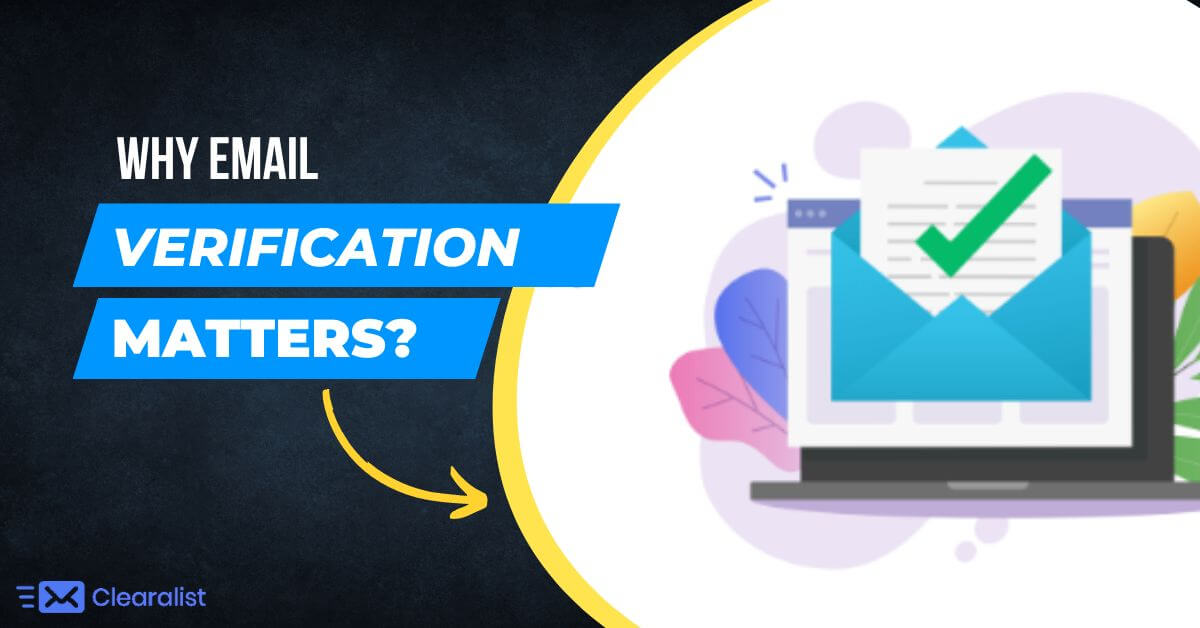Email verification is crucial for keeping your users’ database up to date. There are various explanations for this, including having your reputation and your users’ data safe. Here are the three most effective reasons why you should make authenticating your customers’ email addresses a priority:

Email Verification protects your sender’s reputation
In this competitive business world, your sender’s reputation is something to be safeguarded. It’s specified based on your sending history, the number of spam complaints, the authentication protocols you employ, and the reputation of your IP addresses and domain names.
Validating email addresses against errors, bogus domains, and spam traps helps to reduce your bounce rate and spam record and keep your email lists clean.
Email Verification guards your business network
If a client or user has mistyped their email, it will cause all incoming mail to be undeliverable. Email verification software with a correction tool can spot and iron out any errors to ensure you’re not sending materials to dead inboxes.
If a customer has modified their email address after a company or position move, look at programs that can match up old data with new ones to reconnect. Both of these methods help to preserve your network.
Email Verification protects your customers’ data
If you don’t verify that an email address belongs to the person who entered it, you could be leaking their info to someone else. An extensive security breach like that is likely to hurt your business’s image badly.
There are dozens of instances to warn you of the risk – from hijacked Skype accounts to falsified Netflix subscriptions. Mailchimp has been criticized for doing away with its opt-in confirmation email as the customer default, while Gmail has come under fire for not acknowledging dots in email addresses.
Luckily, the answer is straightforward: an email verification/validation service that needs information that only the intended customer would know should cover you.